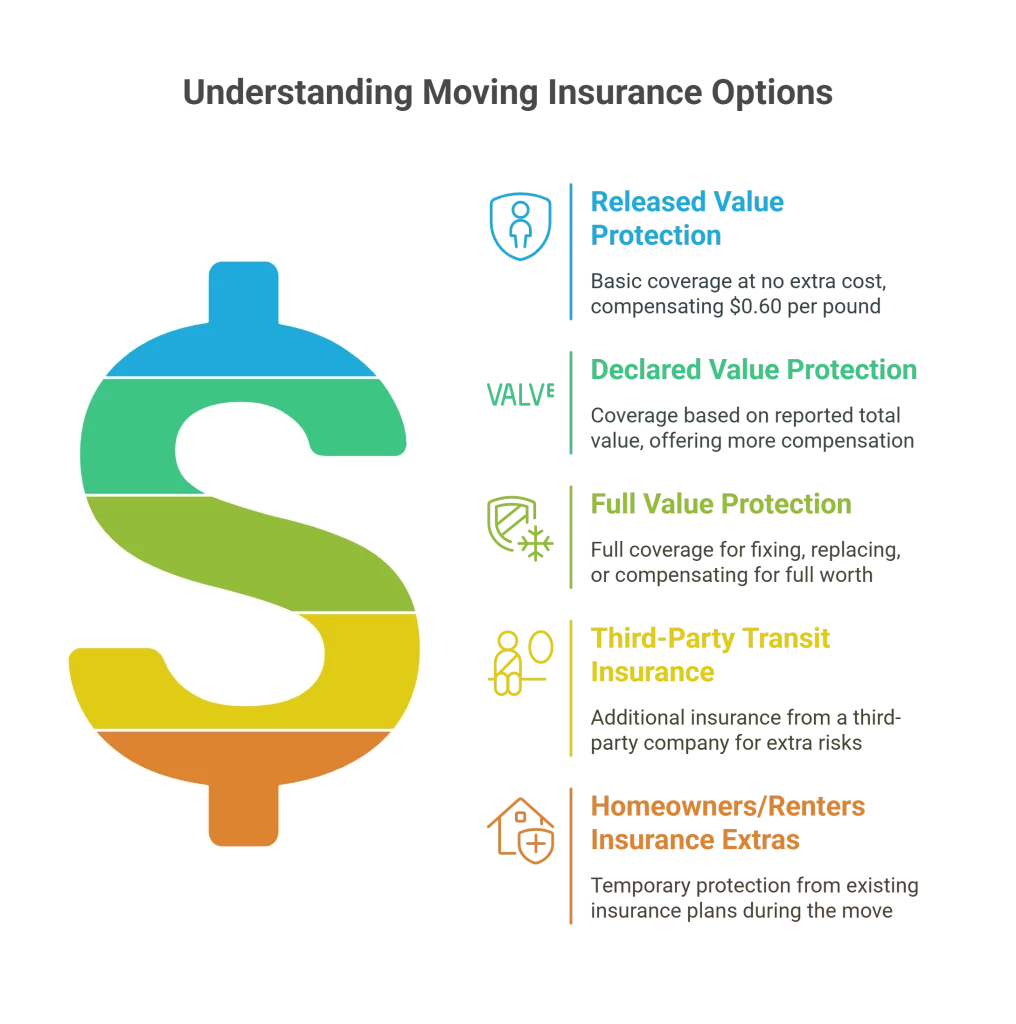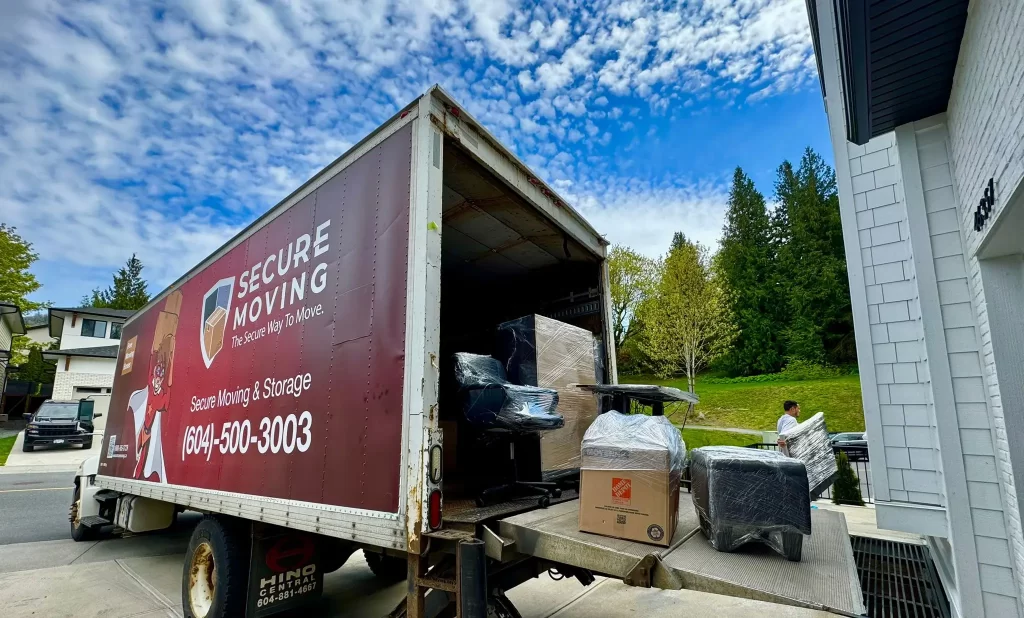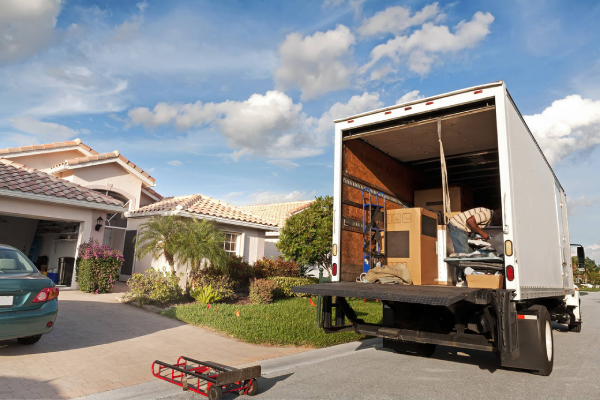When organizing a move many people worry about if moving companies take responsibility if their items get damaged. The question, “Are movers liable for damage?” often comes up and shows how uneasy people feel during this time. This article looks at the liability of moving companies in British Columbia in areas like Vancouver, Burnaby, and Richmond, and explains ways for customers to safeguard themselves and their belongings.

Legal Framework of Moving Company Liability
Are moving companies liable for damage? In British Columbia and across Canada moving companies follow a mix of provincial rules, federal laws, industry practices, and contract agreements. The Canadian Motor Vehicle Transport Act and consumer protection laws in the provinces form the main set of rules for movers’ duties.
Moving contracts explain who is responsible for damages. Good moving companies in Vancouver give clear contracts. These contracts explain their duties, their liability limits, and how people can report damages. Customers need to read these agreements before they agree to them.
Types of Moving Insurance and Coverage
To understand whether are movers liable for damage, you should know the insurance types. Moving insurance plays an important role in protecting customers’ belongings. There are several types of coverage available:
- Released Value Protection (Basic Coverage): Most moving companies include this basic form of coverage at no added charge. It compensates you around $0.60 per pound for each item, no matter how much the item is worth.
- Declared Value Protection: This covers your shipment based on the total value you report. It provides more compensation compared to basic coverage, but it won’t cover the full cost of replacing expensive items.
- Full Value Protection (Replacement Value Coverage): You can pay extra to get full coverage that makes the moving company responsible for fixing, replacing, or compensating you for the full current worth of anything lost or damaged.

- Third-Party Transit Insurance: You have the option to buy more insurance from a third-party company. This can include risks the moving company’s policy may not cover, like natural disasters or certain expensive items.
- Homeowners or Renters Insurance Extras: Certain home or renters insurance plans might include temporary protection for your items while you move. This lasts for a specific time and comes with some conditions. Talk to your insurance provider to understand the details before moving.
Consumer Rights and Legal Protections
British Columbia’s consumer protection laws give customers the right to get clear and honest information about the services they buy. This covers details like liability, insurance, and how claims work. To understand that are moving companies liable for damage, remember that people can complain to Consumer Protection BC or get legal help if a moving company doesn’t meet its duties.
The Canadian Motor Vehicle Transport Act provides a way to solve disputes between people and moving companies. It’s a good idea for clients to hold onto all their moving papers, such as contracts, inventory lists, and photos of items.
The Damage Claims Process
We answered the question of whether are movers responsible for damage. Now we should know that if damage happens during a move, customers should follow the claims process outlined by the moving company. This typically involves:
- Keep a Record of the Damage: Take some pictures and write down a list of anything that got damaged as soon as you see it.
- Contact the Movers Right Away: Contact the moving company to let them know what got damaged.

- Send in a Claiming Damage: File a proper claim for damages to make sure to include all the proof that you have.
- Claim Review and Payment: The moving company will go over your claim details and decide on the right compensation based on what’s in the contract and any insurance you have.
Common Terms and Conditions Regarding Damage Liability
To understand that are movers responsible for damage, you should know some details. Most movers include basic terms in their contracts about who is responsible if stuff gets damaged. These contracts often make the company accountable when bad handling causes damage. But they don’t cover things like money, valuable jewelry, or essential paperwork unless the customer declares them at first and gets extra insurance. Here are the exact terms and conditions:
- Liability Limitation:
“The Company’s liability for loss or damage to any article is limited to $0.60 per pound per article, unless the Customer declares a higher value and pays an additional charge.” - Exclusions:
“The Company is not liable for damage to items packed by the Customer unless inspected and noted by the Company prior to transport.” - Claims Procedure:
“Any claim for loss or damage must be reported in writing to the Company within 30 days of delivery, accompanied by photographs and a detailed list of affected items.” - Customer Responsibility:
“The Customer is responsible for ensuring all items are properly packed and ready for transport, and for being present at pickup and delivery.”
Compensation and Customer Satisfaction
Compensation and payment for broken items depend on what the contract says and the kind of insurance chosen. Sometimes, the moving company fixes or replaces the item. Other times, they might give cash as compensation. Good moving companies focus on making their customers happy. They know that earning trust and being fair and clear about damage can make the moving process better for everyone.

Industry Standards and Customer Protection
The moving industry in British Columbia follows rules set by the province as well as optional standards from the industry. Groups like the Canadian Association of Movers (CAM) create guidelines to improve how moving companies operate. These include rules about packing, responsibility for damages, and protecting customers.
Reputable moving companies like Secure Moving, make customer protection their main focus. They must share clear details about their liability coverage available insurance plans, and how to handle claims. Customers should trust that their items will be handled with care and that any damages will be addressed.
How to Protect Your Belongings During a Move
Are movers liable for damage? Yes, but while movers can handle belongings, people can take steps to protect their stuff better:
- Choose Trustworthy Mover: Hire movers who have good reviews and a solid history of quality work.
- Read the Contract Closely: You should go through the contract details to check what it covers when it comes to liability and insurance and ask all the questions you need.
- Pack Important Things Yourself: Professional packing services work well for most items, but it is better that you handle fragile or valuable items on your own.
- Mark Boxes: Make sure you label boxes with fragile or valuable things so movers know to handle them with extra caution.
Read More: Additionally, if you’re planning a move, make sure you’re choosing the right truck size for your belongings. You might want to check out our article on “What size moving truck do I need for a 3-bedroom house?” to ensure you select the perfect size and avoid overcrowding, which can help minimize the risk of damage during transit.
Moving and Insurance Coverage in Canada and British Columbia
Relocating within Canada, whether to British Columbia or elsewhere, needs an understanding of how insurance works for moves. Moving insurance helps safeguard your stuff during transport from things like loss, theft, or damage.
- Vancouver BC: A reliable moving company in Vancouver offers simple liability coverage. To protect valuable items, it is smart to buy full-value or third-party insurance.
- Burnaby BC: A moving company in Burnaby offers insurance with limited coverage along the packing, loading, and unpacking services. To get better protection, check for extra insurance.
- Richmond BC: A reliable moving company in Richmond comes with basic insurance, but upgrading is a good idea if you have costly or delicate items that you want to move.
- British Columbia (General): A moving company in British Columbia provides standard insurance for moving. Check if your home insurance covers items in transit and buy extra policies to stay worry-free.
- Canada (General): A moving company in Canada offers insurance depending on the move type and the province. Check your insurance plans ahead of a move and buy extra coverage if necessary to keep your items safe during the relocation.

Secure Moving, Your Trusted Moving Company with Insurance Coverage
Secure Moving is your trusted moving company in British Columbia that offers reliable services and 5 million liability insurance and WCB (work compensation). With Secure Moving, your belongings are protected against damage or loss during transit. Contact us now to reserve our services, done by our experienced team.
FAQs
- Are movers legally responsible for damage during a move?
Yes, movers can be legally responsible for damage, but their liability depends on the coverage you select and the circumstances of the damage. - What types of insurance do moving companies offer?
Moving companies usually offer Basic Carrier Liability (Released Value Protection) and Full-Value Protection insurance options. - How can I file a damage claim if my items are broken?
Document the damage, take photos, and submit a claim form to the moving company as soon as possible, usually within nine months of delivery. - Do all moving companies in Vancouver provide damage insurance?
No, not all moving companies in Vancouver automatically include damage insurance; some only provide basic liability and offer additional coverage for purchase. - How can I protect my belongings during the move?
Use sturdy packing materials, label fragile items, take photos of valuables, and buy extra insurance or professional packing services. - What should I look for when choosing a moving company in British Columbia regarding damage protection?
Check for clear insurance options, transparent damage protection policies, proper licensing, and positive customer reviews.









